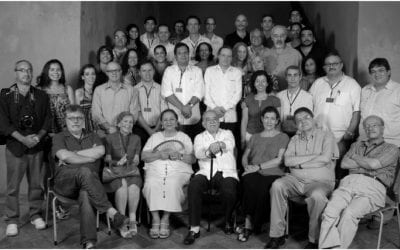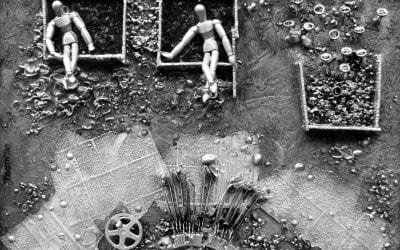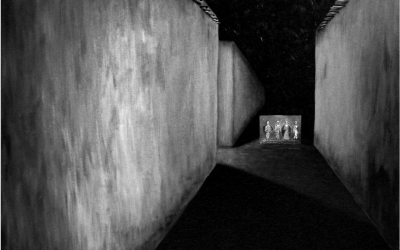Journalism in Paraguay
Between Silent Tradition and Noisy Democracy
New technologies have started to play an important role in building a more participatory civic society in Paraguay. The Internet reached here in 1997, but even now only one in ten Paraguayans has access. The number of users is, however, increasing among the young. Some civic programs are pushing for more access to the Internet and teaching how to use it. For example, Fundación Libre with its CETICOM (Centro Tecnológico de Información y Communicación) offers courses on how to develop media on the Internet. Since its first efforts, many people have started their own blogs and spread the idea of the importance of new technologies to advance freedom of the press and free speech. Much remains to be done in this field, which could be very important in encouraging a sense of power to publish ideas without fear of censorship or control.
Fear has played an important role throughout Paraguayan history, and, as a consequence, freedom is a ambiguous word here. It depends on who defines it, how it is defined and in what context. For instance, the so-called “father of journalism,” Carlos Antonio López, the Paraguayan leader who replaced long-term dictator José Gaspar Rodríguez de Francia, was also editor of El Paraguayo Independiente, the country’s first newspaper, during his period in office. There is clearly a conflict of interest between being the editor of the country’s only newspaper and being the non-elected political leader, one who also wrote the first Paraguayan constitution which states that nobody may own a printing company without first receiving permission from the “Supreme Government.”
Free speech and freedom of the press evolved slowly throughout Paraguayan history. During the last two decades (1989-2009) some educated people linked democracy with making these two important human rights key elements in building a political process that would give citizens full access to participation. Yet Paraguay, according to the Chilean pollsters’ Latinobarómetro, is one of the Latin American countries least enthusiastic about democracy. Almost half of all Paraguayans are ready to give up some freedoms in exchange for better economic and social conditions.
Education
Freedoms of press and speech are not appreciated in a country in which investment in education during the long dictatorship of General Alfredo Stroessner (1954-1989) was 1% of the Gross National Product (GNP). In the subsequent democratic period, education investment has reached just 2.8% of GNP, far lower than in Uruguay, Costa Rica and Chile, where people view democracy enthusiastically as a means of building a strong state based upon the rule of law. There is a clear link between education, free speech and freedom of the press. It is impossible to participate in the democratic discussion without information or knowledge. At present, democratic daily conversations in the media deal with irrelevant issues due to the low capacity to understand complex issues.
The level of illiteracy is still high. The government speaks of a level of about 10%, but in reality it is over 45%, according to former Minister of Education Horacio Galeano Perrone, whom I interviewed on Radio Libre recently. This number of illiterates makes it difficult to enjoy freedom of speech and of the press.
Newspaper circulation is very low for a country with more than six million people. Fewer than 130,000 copies are distributed from the capital city, Asunción. ABC Color, the most popular newspaper, sells 20,000 copies daily, whereas in 1984, before it was closed down for five years by the Stroessner regime, sales had reached 80,000. This large fall in circulation at a time of increased population is proof of disenchantment with the press. Internet connectivity in Paraguay is still very low: 15% of the population has access, but the plan is to increase it in the coming years. Many people see the press as more interested in confrontation and dispute with the political establishment than in helping the people participate in the democratic process with knowledge and information.
Some recent polls also show that even though people are disenchanted with the executive, legislative and judicial institutions of democracy, they still trust the media and the Catholic Church. Nevertheless, there has been a big drop in that trust compared to just after the overthrow of Stroessner in 1989, when people held journalists and the media in high esteem.
Lack of formal education, untrustworthy media and the very small distribution of newspapers and books are key factors in understanding why free speech and freedom of the press did not play a more important role in creating enthusiasm for democracy. The 1992 Constitution says that freedoms of press and speech are to be enjoyed with “responsibility, equity and veracity.” From a legal point of view, the current Paraguayan constitution is one of the most advanced in the region in terms of protecting freedoms of speech and press and authorizing public access to information. Articles 24 to 29 repeat the importance of the freedom of expression and the freedom of the press in strengthening democracy and human values. Indeed, the Paraguayan constitution is often used as a model in Latin America. It protects the interests of citizens as well as those of journalists, photographers and media owners. It clearly forbids governments from closing newspapers and magazines and shutting down radio or television stations because they disturb the political establishment.
There are also some important advances in the criminal code, even though one can be sued under the criminal code rather than the civil code in libel cases. This provision was used by some political figures against journalists who dared to publish articles on corruption. Judicial decisions show that in some cases judges consider the interests of politicians to be more important than the interests of individuals, specifically where journalists decided to publish articles covering corruption, which is still a big problem in Paraguay. Annual reviews by Transparency International still list Paraguay as one of the most corrupt countries in Latin America. Impunity is high in Paraguay, where people who commit a crime have a 99% possibility of not being prosecuted, fined or sent to prison. This situation makes journalists despair of reporting cases of corruption, because they see their work as useless and without any support from the judiciary. As many people have observed: “Under democracy we can say whatever we like, but nothing happens when we complain. With democracy we can talk, but we cannot afford to eat.”
Focus on New Technologies
New technologies are an opportunity, but they also present a series of challenges in Paraguay.
A major social evolution took place following the arrival of democracy in 1989. Although people are no longer afraid of expressing ideas, lack of education makes it very difficult for them to hold serious discussions on diverse issues.
Another important but sensitive element is that two languages are present in Paraguay. People speak Guaraní (an indigenous language) and Spanish. About 60% of the population speaks only Guaraní, whereas Spanish is the language of commerce and politics. This situation restricts fluency in the expression of ideas. There is a long way to go to make Paraguay a fully bilingual country where people can comfortably express ideas in both languages. The state is beginning to teach Guaraní to some and Spanish as a second language to others, but the results after almost 20 years of implementation are poor because of a shortage of teachers with a good command of both Guaraní and Spanish.
Freedom of speech and of the press require the encouragement of reading in order to give people the vocabulary and the ideas necessary to participate in conversation and discussion. In neighboring Argentina, the former rector of the Universidad de Buenos Aires, Guillermo Jaime Etcheverry, wrote in his book La Tragedia Educativa that a young student in Buenos Aires uses fewer than 300 words to communicate daily, whereas the Spanish language has more than 100,000 words. If this is the situation in Buenos Aires, one can only imagine how many words are used in Paraguay.
Paraguayans are not able and free to participate because they are ashamed to express their ideas as they are not trained to do so. It is rare to find Paraguayan families where members express their ideas freely over lunch or dinner. The authoritarian tradition permeated every part of society, making silence and self-restriction part of the national culture. Paraguay can be defined in many ways as a silent society where social control still inhibits people who want to express their own ideas in school or social gatherings—and this attitude permeates both the press and the public’s perception of the press.
The Role of Education
To conclude, it is not sufficient to merely enshrine freedoms of speech and press in the Constitution. We Paraguayans need to understand that it is necessary to build a social consensus on the importance of both freedoms in a country which suffered for so long from censorship, fear and the persecution of ideas. It is necessary to reduce inequality in education and improve access to new technologies, but at the same time it is important to promote reading, publications and access to public libraries in order to give people the tools to enjoy these freedoms.
Paraguay has experienced a long tradition of silence in its two hundred years of independence. Presently, the country is enjoying more than twenty years of democracy. However, the impact of past censorship upon the population is clear. Education is needed to promote both democracy and the overall understanding of freedom.
Spring 2013, Volume XII, Number 3
Benjamin Fernández Bogado, author, speaker, broadcaster, and university lecturer, is founder and director of Radio Libre and Fundacion Libre. His most recent books include A Sacudirse! and ¿Y Ahora Qué? He was a 2000 Nieman Fellow and a 2008 Visiting Fellow at the David Rockefeller Center for Latin American Studies. His website is www.benjaminfernandezbogado.wordpress.com.
Related Articles
New Journalists for a New World
I received a surprising phone call one day in late 1993, when I was the director of Telecaribe, a public television channel in Barranquilla, Colombia. The caller was none other than Gabriel García Márquez. “Will you invite me to dinner?” he asked me. “Of course, Gabito,” I…
Latin American Nieman Fellows
A few days after I arrived at Harvard in August 2000 to begin my work as curator of the Nieman Foundation for Journalism, Tim Golden, an investigative reporter for the New York Times in Latin America, phoned me. “Could I find a place in the new Nieman class for a Colombian…
Freedom of Expression in Latin America
In June 1997, Chile’s Supreme Court upheld a ban on the film “The Last Temptation of Christ,” based on a Pinochet-era provision of the country’s constitution. Four years later, the Inter-American Court of Human Rights heard a challenge to this ban and issued a very different…





